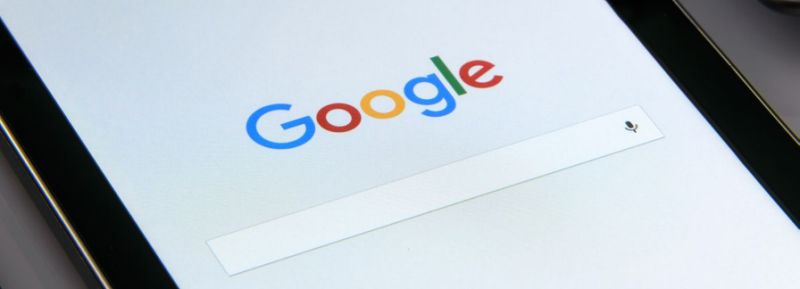
When Is Debt Dangerous?
Debt and other liabilities become risky for a business when it cannot easily fulfill those obligations, either with free cash flow or by raising capital at an attractive price. Part and parcel of capitalism is the process of ‘creative destruction’ where failed businesses are mercilessly liquidated by their bankers. However, a more usual (but still expensive) situation is where a company must dilute shareholders at a cheap share price simply to get debt under control. Having said that, the most common situation is where a company manages its debt reasonably well – and to its own advantage. The first step when considering a company’s debt levels is to consider its cash and debt together.
<p class="canvas-atom canvas-text Mb(1.0em) Mb(0)–sm Mt(0.8em)–sm" type="text" content=" View our latest analysis for Alphabet ” data-reactid=”22″>View our latest analysis for Alphabet
What Is Alphabet’s Debt?
The chart below, which you can click on for greater detail, shows that Alphabet had US$3.96b in debt in March 2020; about the same as the year before. However, its balance sheet shows it holds US$117.2b in cash, so it actually has US$113.3b net cash.

How Healthy Is Alphabet’s Balance Sheet?
<p class="canvas-atom canvas-text Mb(1.0em) Mb(0)–sm Mt(0.8em)–sm" type="text" content="Zooming in on the latest balance sheet data, we can see that Alphabet had liabilities of US$40.2b due within 12 months and liabilities of US$29.6b due beyond that. Offsetting these obligations, it had cash of US$117.2b as well as receivables valued at US$23.7b due within 12 months. So it actually has US$71.2b more liquid assets than total liabilities.” data-reactid=”38″>Zooming in on the latest balance sheet data, we can see that Alphabet had liabilities of US$40.2b due within 12 months and liabilities of US$29.6b due beyond that. Offsetting these obligations, it had cash of US$117.2b as well as receivables valued at US$23.7b due within 12 months. So it actually has US$71.2b more liquid assets than total liabilities.
This surplus suggests that Alphabet has a conservative balance sheet, and could probably eliminate its debt without much difficulty. Simply put, the fact that Alphabet has more cash than debt is arguably a good indication that it can manage its debt safely.
<p class="canvas-atom canvas-text Mb(1.0em) Mb(0)–sm Mt(0.8em)–sm" type="text" content="The good news is that Alphabet has increased its EBIT by 8.7% over twelve months, which should ease any concerns about debt repayment. The balance sheet is clearly the area to focus on when you are analysing debt. But it is future earnings, more than anything, that will determine Alphabet's ability to maintain a healthy balance sheet going forward. So if you want to see what the professionals think, you might find this free report on analyst profit forecasts to be interesting.” data-reactid=”40″>The good news is that Alphabet has increased its EBIT by 8.7% over twelve months, which should ease any concerns about debt repayment. The balance sheet is clearly the area to focus on when you are analysing debt. But it is future earnings, more than anything, that will determine Alphabet’s ability to maintain a healthy balance sheet going forward. So if you want to see what the professionals think, you might find this free report on analyst profit forecasts to be interesting.
Finally, a company can only pay off debt with cold hard cash, not accounting profits. Alphabet may have net cash on the balance sheet, but it is still interesting to look at how well the business converts its earnings before interest and tax (EBIT) to free cash flow, because that will influence both its need for, and its capacity to manage debt. During the last three years, Alphabet produced sturdy free cash flow equating to 77% of its EBIT, about what we’d expect. This cold hard cash means it can reduce its debt when it wants to.
Summing up
<p class="canvas-atom canvas-text Mb(1.0em) Mb(0)–sm Mt(0.8em)–sm" type="text" content="While we empathize with investors who find debt concerning, you should keep in mind that Alphabet has net cash of US$113.3b, as well as more liquid assets than liabilities. The cherry on top was that in converted 77% of that EBIT to free cash flow, bringing in US$29b. So is Alphabet's debt a risk? It doesn't seem so to us. Over time, share prices tend to follow earnings per share, so if you're interested in Alphabet, you may well want to click here to check an interactive graph of its earnings per share history.” data-reactid=”43″>While we empathize with investors who find debt concerning, you should keep in mind that Alphabet has net cash of US$113.3b, as well as more liquid assets than liabilities. The cherry on top was that in converted 77% of that EBIT to free cash flow, bringing in US$29b. So is Alphabet’s debt a risk? It doesn’t seem so to us. Over time, share prices tend to follow earnings per share, so if you’re interested in Alphabet, you may well want to click here to check an interactive graph of its earnings per share history.
<p class="canvas-atom canvas-text Mb(1.0em) Mb(0)–sm Mt(0.8em)–sm" type="text" content="This article by Simply Wall St is general in nature. It does not constitute a recommendation to buy or sell any stock, and does not take account of your objectives, or your financial situation. We aim to bring you long-term focused analysis driven by fundamental data. Note that our analysis may not factor in the latest price-sensitive company announcements or qualitative material. Simply Wall St has no position in any stocks mentioned.
Have feedback on this article? Concerned about the content? Get in touch with us directly. Alternatively, email [email protected].” data-reactid=”49″>This article by Simply Wall St is general in nature. It does not constitute a recommendation to buy or sell any stock, and does not take account of your objectives, or your financial situation. We aim to bring you long-term focused analysis driven by fundamental data. Note that our analysis may not factor in the latest price-sensitive company announcements or qualitative material. Simply Wall St has no position in any stocks mentioned.
Have feedback on this article? Concerned about the content? Get in touch with us directly. Alternatively, email [email protected].










